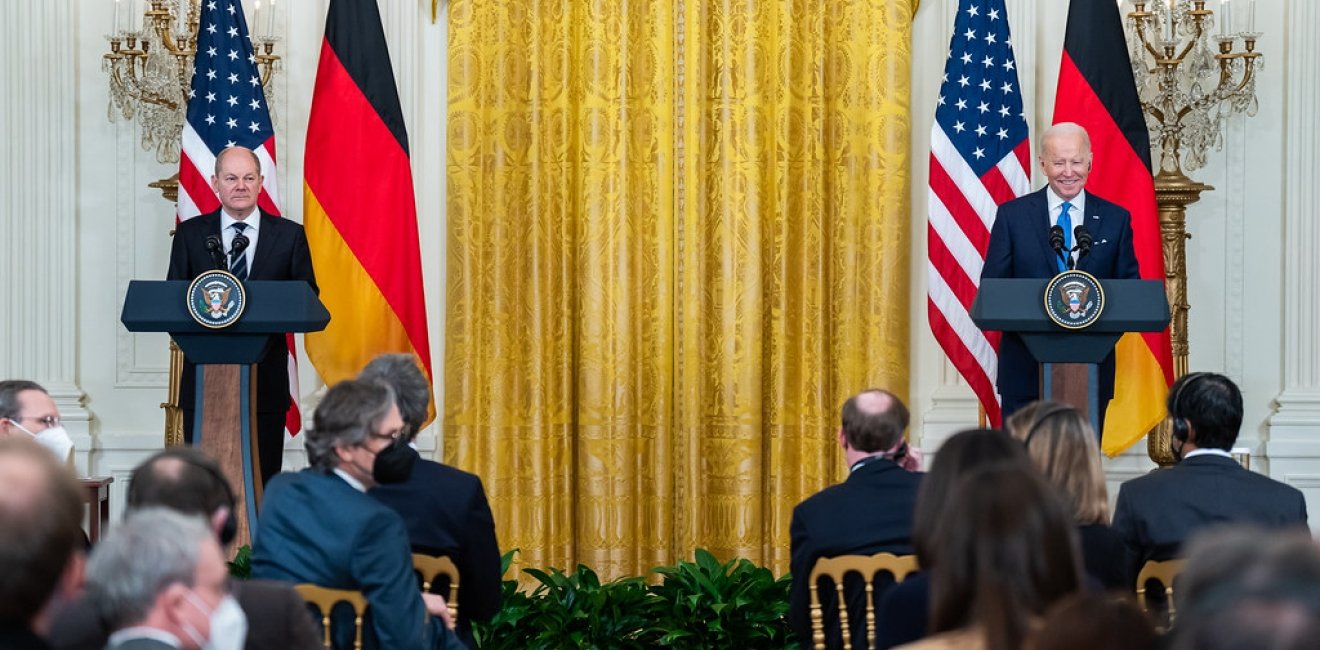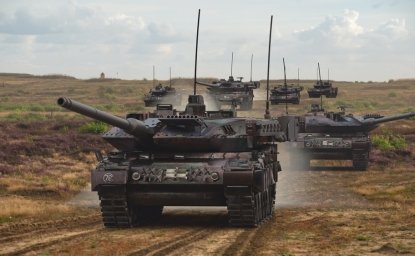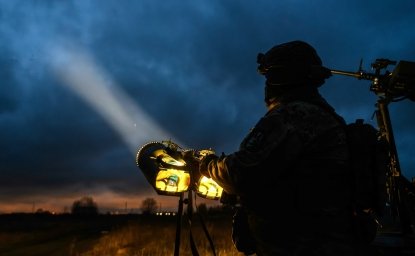At last month’s Munich Security Conference, German Chancellor Olaf Scholz sent a clear message to anyone doubting Germany’s commitment to Ukraine. “We’re supporting them,” he emphasized “as comprehensively and as long as necessary.” The words echoed his bold speech to the German Parliament a year ago. Then, he termed Putin’s invasion a “watershed moment;” he dramatically turned around decades of German security policy by pledging massive defense investment and stronger German leadership.
But Scholz’s career trademark is caution -- and he has not abandoned it. In Munich, Scholz also called for balance between support for Ukraine and “unintended escalation.” Despite pressure, he stressed “in this key question, caution must take priority over hasty decisions, unity over solo actions.”
Scholz brings his trademark caution to Washington for his meeting with President Biden. He will look for validation of Germany’s deliberate approach: to act with – but not ahead of – its Allies. Especially the United States.
The most recent example? Scholz’s delayed decision on sending Leopard tanks to Ukraine. When the Ukraine Defense Contact Group met at the end of January, most expected a decision by defense ministers. Instead, Germany’s day-old Defense Minister held back. Not only did he not commit German leopards, but he also declined to lift German export controls and permit other European countries to send theirs. Only after the U.S. made its own (long-term) commitment to send Abrams tanks did Germany act. For Scholz, leveraging U.S. top-cover was the necessary clincher. He is now rightly calling out slow-to-act European partners whose Leopard commitments do not match their earlier rhetoric.
But Scholz’s push for Abrams before taking his own cautious decision on Leopards left lingering irritation on the U.S. side. So there will be tough questions on when Germany will step up its efforts to build the defense capabilities Scholz promised a year ago. While Germany has set in motion the needed procurement of F-35s, most of the defense spending plus-up remains unallocated. Scholz and his new Defense Minister, Boris Pistorius, recognize the problem. It’s why Pistorius focused on the topic at the Munich Security conference, and why Scholz told the German Parliament on March 2 that he wanted to have projects funded by the defense supplement “under contract” by the end of the year.
Also on Scholz’s agenda will be a preview of Germany’s first (and still unfinished) National Security Strategy. Most policymakers expected it to be rolled out at the Munich Security Conference, where it would have been a much-discussed centerpiece. But interagency disagreements (reportedly over establishing a full-scale National Security Council in the Chancellery) held up completion. No matter how the text is tweaked to account for coalition government rivalries, Scholz is right to preview its overall direction with the White House. By briefing it in advance, Scholz will hope to defuse any potential criticism.
And there may be some. One point of friction is China. Germany’s export-dependent economy is powered by highly globalized industries. German corporate leaders (and many politicians) are critical of what they see as U.S.-led “decoupling” efforts. Scholz defended his November visit to China, stressing he used the opportunity to raise human rights concerns and press China to uphold fundamental principles of the international order. But like Merkel, he took major German business leaders with him – sending a mixed message at best. For the U.S., it will be important to share in-depth the intelligence assessments behind our policy approach. And language matters: for Germany and its companies, “de-risking” will be more palatable than “decoupling.”
A year ago, Scholz’s bold reversal of German security policy won Washington’s praise. This year, Washington will be pressing Scholz for continued boldness over caution.
Author


Global Europe Program
The Global Europe Program is focused on Europe’s capabilities, and how it engages on critical global issues. We investigate European approaches to critical global issues. We examine Europe’s relations with Russia and Eurasia, China and the Indo-Pacific, the Middle East and Africa. Our initiatives include “Ukraine in Europe”—an examination of what it will take to make Ukraine’s European future a reality. But we also examine the role of NATO, the European Union and the OSCE, Europe’s energy security, transatlantic trade disputes, and challenges to democracy. The Global Europe Program’s staff, scholars-in-residence, and Global Fellows participate in seminars, policy study groups, and international conferences to provide analytical recommendations to policy makers and the media. Read more





